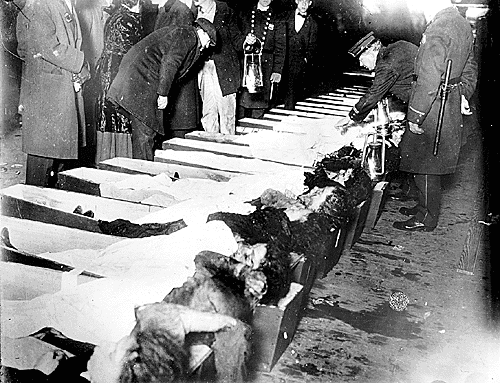Explore histories of migration, citizenship and belonging in Germany and the U.S. over the centuries.
On March 25, 1911, a fire raged through the top floors of the Triangle Shirtwaist Factory in New York City and took the lives of 146 garment workers, the majority of whom were young Italian and European Jewish immigrant women.
 Franklin Delano Roosevelt Library
Franklin Delano Roosevelt Library